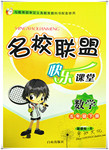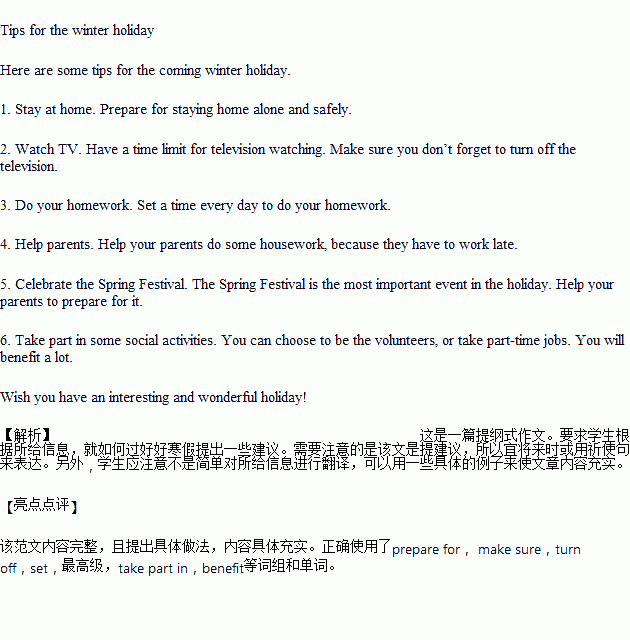题目内容
一个学期就要结束了,寒假即将来临,请根据所给的信息,以“Tips for the winter holiday”为题目写一篇学生如何过好寒假的小短文。内容可以包括以下:
1.stay at home 2.watch Tv 3.do your homework 4.help parents
5.celebrate the Spring Festival 6. take part in some social activities.
(词数:100个左右。)
练习册系列答案
 名校联盟快乐课堂系列答案
名校联盟快乐课堂系列答案
相关题目


 st next door to his working place, and took her to the park.
st next door to his working place, and took her to the park.